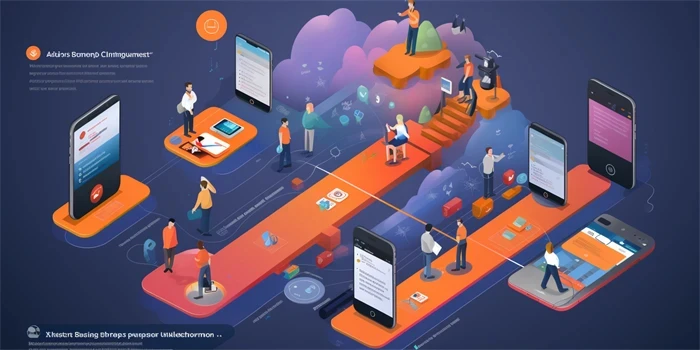With the rapid advances in artificial intelligence (AI), personalized shopping experiences are becoming a reality for consumers around the globe. Gone are the days of one-size-fits-all marketing strategies. Today, businesses are leveraging AI technologies to tailor their offerings to individual customers, thereby enhancing their overall shopping experience. Let’s explore how AI is revolutionizing personalized shopping in the following ways:

1. Customer Profiling and Segmentation
AI systems can analyze vast amounts of customer data, including demographics, past purchases, and online behavior, to create detailed customer profiles. These profiles enable businesses to segment their customers into specific groups, allowing them to target each segment with personalized offers, recommendations, and discounts.
For example, Amazon’s recommendation engine analyzes customer browsing and purchase history to suggest products that align with their preferences. This personalization not only enhances the shopping experience but also increases the chances of making a sale.
2. Virtual Personal Shoppers
AI-powered chatbots and virtual assistants act as personal shopping assistants, guiding customers through their purchase journey. These virtual personal shoppers can provide recommendations based on customer preferences, offer styling advice, and answer queries in real-time.
Companies like Sephora have implemented virtual beauty assistants that use AI to analyze customer facial features and recommend suitable makeup products. This not only enhances the shopping experience but also saves customers time and effort.
3. Predictive Analytics
AI algorithms can predict customer behavior and preferences using predictive analytics. By analyzing historical data, AI systems can anticipate what a customer is likely to purchase next, enabling businesses to offer personalized product recommendations and targeted promotions.
Netflix, for instance, leverages AI algorithms to recommend movies and TV shows based on users’ past watching habits. This personalized recommendation system has greatly improved the user experience on the platform.
4. Visual Search
AI-powered visual search technology allows customers to take a picture of a product or upload an image and find similar items. This feature simplifies the shopping process by eliminating the need for keyword searches and enhances the overall customer experience.
Pinterest Lens is one such example of a visual search tool that uses AI to identify and recommend visually similar products or items based on user inputs. This technology revolutionizes the way customers discover and purchase products online.
5. Dynamic Pricing
AI can optimize pricing strategies by analyzing real-time market data, competitor prices, and consumer demand. This enables businesses to dynamically adjust their prices based on various factors, such as supply and demand, customer preferences, and market trends.
Airlines often use dynamic pricing algorithms to adjust ticket prices based on factors like booking patterns and seat availability. This personalized pricing strategy allows airlines to maximize revenue while offering competitive prices to customers.
6. Personalized Marketing Campaigns
AI allows businesses to create personalized marketing campaigns tailored to individual customers. By analyzing customer data and behavior, AI algorithms can determine the most effective channels, messages, and timing for marketing campaigns.
Online retailers, like ASOS, use AI-powered algorithms to send personalized email campaigns featuring products that align with each customer’s style preferences. This level of personalization greatly improves customer engagement and promotes brand loyalty.
7. Intelligent Customer Service
AI-powered chatbots and virtual assistants are transforming customer service by providing instant and accurate responses to customer queries. These AI systems can understand customer intent, answer frequently asked questions, and resolve basic issues without human intervention.
Bank of America’s virtual assistant, Erica, uses natural language processing and AI algorithms to assist customers with everyday banking tasks. This 24/7 availability and quick response time enhance the customer service experience.
8. Enhanced Fraud Detection
AI algorithms can analyze customer behavior patterns to detect potential fraudulent activities. By monitoring transactions and identifying unusual patterns, AI-powered fraud detection systems can provide real-time alerts and protect customers from unauthorized transactions.
Financial institutions, like PayPal, use AI-powered systems to analyze transaction data and identify potential fraudulent activities before they occur. This not only ensures customer confidence but also reduces financial losses for both customers and businesses.
As the AI revolution continues, the possibilities for enhancing the personalized shopping experience are boundless. From customer profiling and virtual personal shoppers to dynamic pricing and personalized marketing campaigns, AI is revolutionizing the way businesses interact with their customers. Embracing AI technologies allows businesses to stay ahead of the competition while delivering tailored experiences that keep customers coming back for more.
Frequently Asked Questions:
Q: Will AI completely replace human customer service representatives?
A: While AI-powered chatbots and virtual assistants are becoming more sophisticated, human customer service representatives still play a crucial role in resolving complex issues and providing a personalized touch. AI systems are designed to complement human interaction rather than replace it.
Q: How does AI ensure data privacy and security in personalized shopping?
A: AI systems take data privacy and security seriously. Businesses implementing AI technologies for personalized shopping must adhere to strict data protection regulations, encrypt customer data, and implement robust security measures to safeguard customer information.
Q: Can AI really understand customer preferences better than humans?
A: AI algorithms can analyze vast amounts of data and identify subtle patterns that may go unnoticed by humans. However, personal preferences can also be influenced by individual emotions and context, which may require human understanding and intuition. AI and human insight are most effective when combined.
References:
- Sweeney, H., & Soutar, G. (2019). Enhancing customer experience: A pragmatic introduction. Journal of Services Marketing, 33(1), 1-20.
- Chen, M., Mao, S., & Liu, Y. (2014). Big data: A survey. Mobile networks and applications, 19(2), 171-209.
- Parvathy, R., & Nitha, S. (2015). Personalisation of e-shopping using data mining. International Journal of Social Science & Interdisciplinary Research, 4(1), 171-188.


